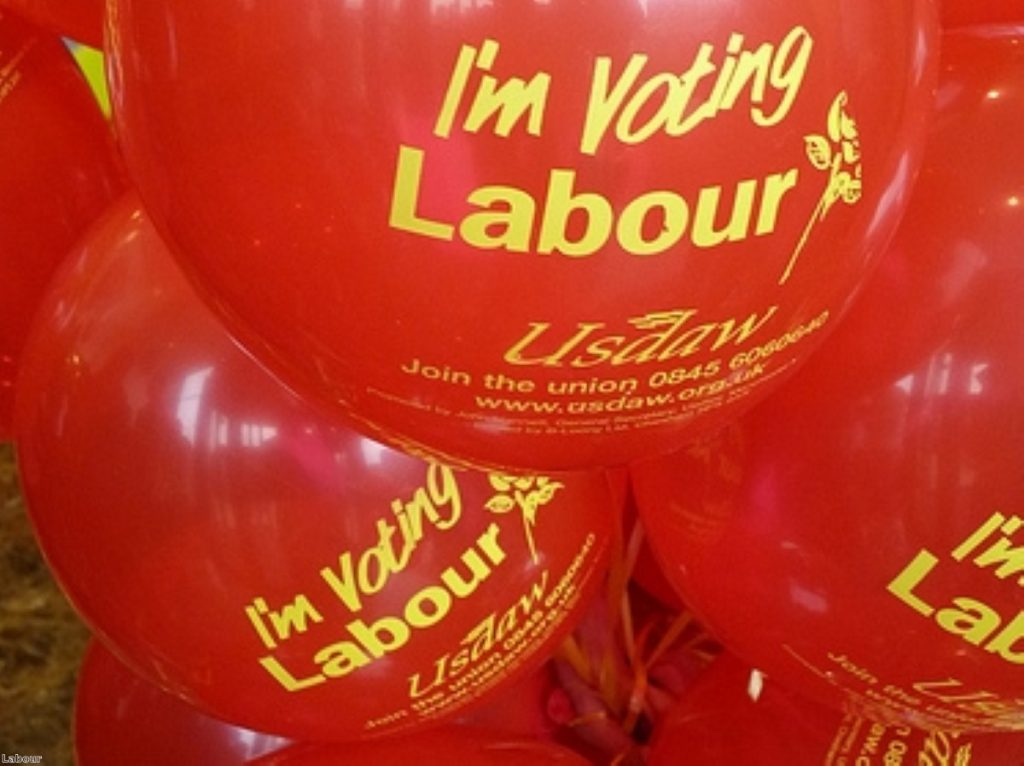Labour left seething over voter registration ‘gerrymandering’
By Alex Stevenson Follow @alex__stevenson
Opposition frontbenchers will accuse the government of putting "political advantage" ahead of democracy when they debate the coalition's voter registration plans later.
The Labour party believes the Conservatives and Liberal Democrats' proposed introduction of individual voter registration for the 2015 general election is motivated by partisanship.
Organisations like the Electoral Reform Society have serious concerns about the move, which they say is being rushed and could result in a sudden drop in the number of eligible voters.


Forcing voters to register individually, rather than by household under the current system, could result in a drop-off of up to 35% in built-up areas – where Labour receives the bulk of its votes.
"I suspect that the Conservative party are putting to the foremost of their considerations that these proposals might be to their own political advantage," shadow justice minister Wayne David told politics.co.uk.
"What they should have at the forefront of their mind is what is good for democracy."
The Commons will debate the proposals this afternoon, when Mr David will point out the Electoral Commission has warned that the proposals could result in the percentage of the population eligible to vote being on the register falling from 92% to as low as 60%.
"There will be 40% of the population who will turn up to the polling station who will be told 'sorry, you're a citizen of this country but you are not able to vote'. That is not democratic, that is not good for society," Mr David added.
"What is important at this stage is they recognise there's folly in the way they've approached this matter and that they embark on a consensual approach to make sure we strengthen democracy, not weaken it."
Consultation on draft legislation closed at the end of last week. Ministers are now considering the concerns of organisations including the Electoral Commission who have voiced doubts about the process.
Last week deputy prime minister Nick Clegg made the government's first major concession on the proposals, when he announced the proposed tick-box opt-out for disenchanted voters would not be taken forward.
The measure had sparked concern because of the ease with which citizens would be able to walk away from what many see as their civic duty to vote. At present electoral registration officers can threaten those who do not register with a £1,000 fine.
"I think it would be a big mistake if that was eroded or taken away, because it sends out a message that involvement in the democratic process, being on the electoral register, is a lifestyle choice and is optional," Mr David said.
"We believe it is a civic responsibility and we believe the government should take the opportunity so that when it comes to the election people can make the choice of whether to vote or not."
Labour had supported the introduction of individual voter registration at the end of its 13 years in power, but has been alarmed by the pace with which the coalition plans to push through with the changes.
The coalition's broader constitutional reform agenda, especially the decision to equalise the size of constituencies, has alienated the party, which is convinced the measures were drawn up to damage Labour's prospects in 2015.
Mr David said: "This is the first time in living memory that a profound constitutional issue like this is being achieved without the consensus of the major parties.
"I deeply regret that, because for constitutional change to be accepted there needs to be broad political agreement between all the parties."












